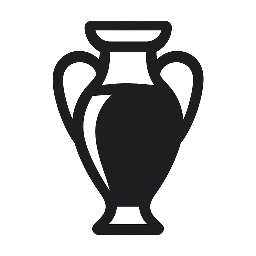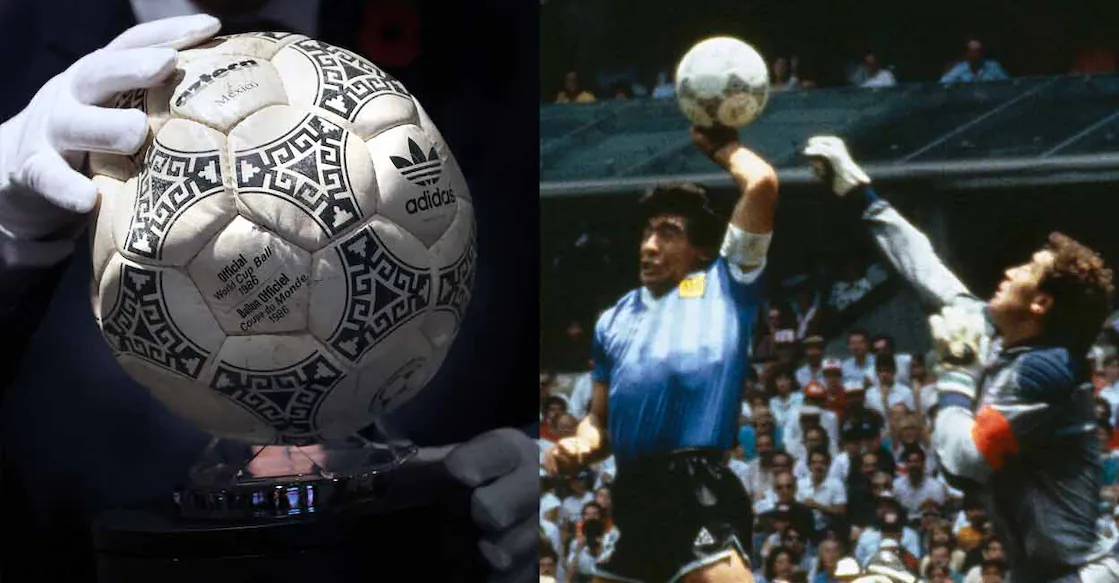Vaša košarica je trenutno prazna!
On June 22, 1986, during the highly anticipated FIFA World Cup quarter-final between Argentina and England in Mexico City, football history was made—and controversially so. Amidst a backdrop of intense national rivalry, intensified by the recent Falklands War, Argentine captain Diego Maradona scored two of the most iconic goals ever witnessed. While his second, a breathtaking solo effort known as the “Goal of the Century,” showcased his undeniable genius, it was his first, the infamous “Hand of God” goal, that ignited global debate and forever cemented its place in football folklore.
The Moment of Infamy: How the “Hand of God” Unfolded
Six minutes into the second half of a tightly contested match, with the score locked at 0-0, the ball looped high into the air inside England’s penalty area after a miscued clearance from English midfielder Steve Hodge. As England’s towering goalkeeper, Peter Shilton, leaped to punch the ball clear, the much shorter Diego Maradona also jumped, appearing to head the ball. However, in a flash of cunning and deception, Maradona subtly used his left hand to punch the ball into the net, beating Shilton. The Tunisian referee, Ali Bin Nasser, having missed the clear handball, allowed the goal to stand, much to the fury and disbelief of the English players and fans. The immediate protests from the English fell on deaf ears, and Argentina celebrated a crucial 1-0 lead.
More Than Just a Goal: Symbolism and Controversy
Maradona later famously attributed the goal to “a little with the head of Maradona and a little with the Hand of God” – a phrase that would instantly become synonymous with the controversial moment. Beyond the immediate outrage over the blatant rule infringement, the goal carried immense symbolic weight, especially for Argentinians. Coming just four years after their defeat in the Falklands War against the United Kingdom, many in Argentina viewed the controversial victory as a form of “symbolic revenge” on the football pitch. Maradona himself acknowledged this deeper significance, stating in his autobiography that it felt like “we had beaten a country, not just a football team.” This layered meaning transformed a mere footballing incident into a powerful cultural and political statement.
The Dual Legacy: Genius and Deception
The “Hand of God” is inextricably linked with Maradona’s other masterpiece from the same match: his breathtaking “Goal of the Century.” Just four minutes after the handball, Maradona embarked on an incredible 60-meter dribble from his own half, weaving past five English defenders with mesmerising skill before slotting the ball past Shilton. This second goal, universally recognized as one of the greatest individual efforts in football history, showcased the unparalleled genius that defined Maradona’s career. The stark contrast between the two goals—one a moment of blatant cheating, the other a display of pure, unadulterated brilliance—perfectly encapsulates the complex and often controversial legacy of Diego Maradona: a flawed genius who could inspire awe and outrage in equal measure.
Lasting Impact: Reshaping Football and Beyond
The “Hand of God” goal sparked immediate and passionate global debate about sportsmanship, fair play, and the role of refereeing. It became a powerful catalyst for calls to introduce technological advancements in football officiating, eventually leading to the development and implementation of technologies like Goal-Line Technology and Video Assistant Referee (VAR) in subsequent decades, aimed at reducing human error in critical moments. The incident remains one of the most talked-about and replayed moments in World Cup history, transcending the sport itself to become a cultural reference point. It serves as a potent reminder of football’s ability to intertwine skill, controversy, national pride, and human fallibility into a single, unforgettable moment.

